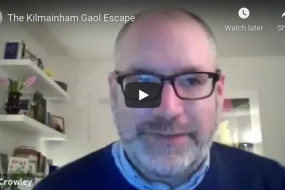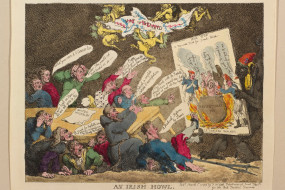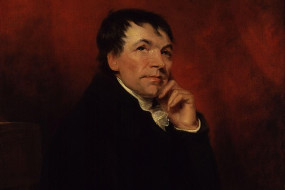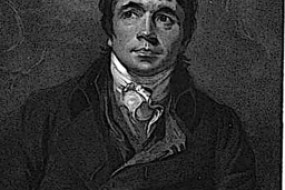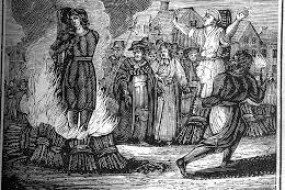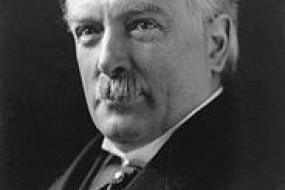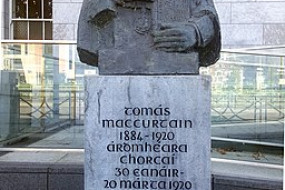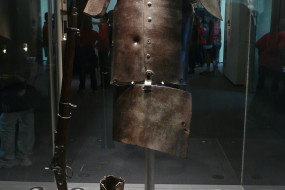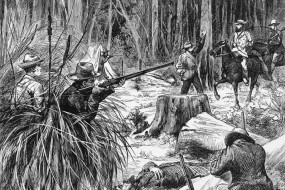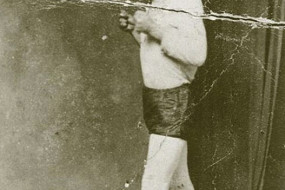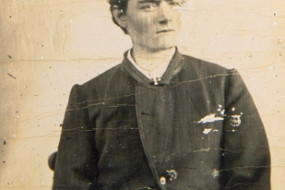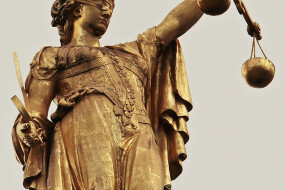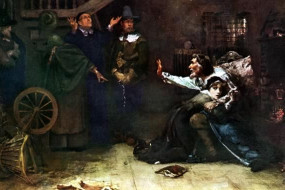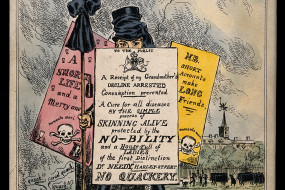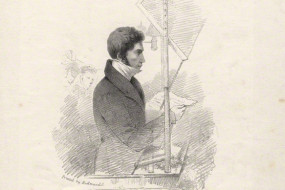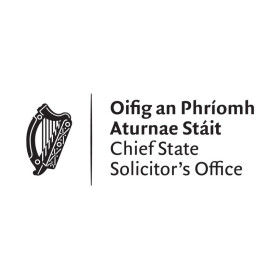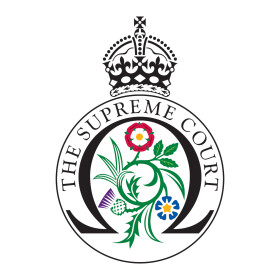This Sunday marks the centenary of the escape of three men from Kilmainham Gaol, at that time both a British military barracks and a political prison.
Irish Legal Heritage
Curran spent many years defending United Irishmen who faced capital charges, the most famous of which were William Orr, Napper Tandy, and Wolfe Tone. His defence of Oliver Bond on the 23rd of July 1798 “was considered by the bar as the most powerful of his efforts upon the state trials of this
Perhaps the most famous trials of John Philpot Curran’s career were those in which he appeared as defence counsel for leading figures of the Society of United Irishmen. While the Rebellion of 1798 was still raging, on 12 July 1798, Curran represented a fellow member of the Irish bar, Hen
John Philpot Curran was one of the most accomplished Irish lawyers of the late 18th and early 19th century. An excellent orator, Curran’s speeches in the courtroom were regularly met with great acclaim. Born in Newmarket, County Cork on 24 July 1750, he was heavily influenced by his mother, Sa
On Wednesday 7 January 1761, Dorcas Kelly (also known as Darkey Kelly) was executed near St Stephens Green in Dublin. Darkey was a sex worker and “brothel keeper” who had been found guilty of the murder of a shoemaker called John Dowling the previous year, and her sentence was “to
On the centenary of the Government of Ireland Act 1920, this piece of legislation will be recalled for effecting the partition of Ireland into Northern Ireland and Southern Ireland. What may be overlooked is that David Lloyd George’s Government of Ireland Act 1920 included a subsection which p
The first Republican Lord Mayor of Cork, Tomás Mac Curtáin, was born on 20 March 1884 in the townland of Ballyknockane, about fifteen miles north of Cork City. When he was 13, Tomás moved to the Blackpool area of Cork City, where he attended North Monastery secondary school. It
Edward “Ned” Kelly was a famous Irish-Australian bushranger and outlaw who was executed in November 1880. Part I, Part II and Part III of this series were published last year. As the pressure to capture Ned Kelly and his associates heightened, police began closely monitoring the homes of
Edward “Ned” Kelly was a famous Irish-Australian bushranger and outlaw who was executed in November 1880. Part I and Part II of this series were published last month. After the Fitzpatrick affair, Ned and Dan were in hiding along with Joe Byrne and Steve Hart.
Edward “Ned” Kelly was a famous Irish-Australian bushranger and outlaw who was executed in November 1880. Part I was published last Friday. The horse that landed 16-year-old Ned with three years of hard labour had actually been stolen – or “borrowed” by a horse-breaker
Edward “Ned” Kelly was a famous Irish-Australian bushranger and outlaw who was executed in November 1880. A martyr in the retelling of the British settlement of Australia, the story of Ned Kelly attracts a great degree of controversy as people disagree about whether he should be remember
In 1937, a story emerged in the newspapers about a girl from Glasgow called Julia Clarke who had been sentenced, in absentia, to one month's imprisonment for “kissing a boyfriend in public”. Ms Clarke and the (notably unnamed) local boy had been seen kissing on church property in Blackro
On 24 March 1661, Florence Newton was committed to prison in Youghal, Co Cork, having been accused of bewitching a young servant girl named Mary Langdon. At Florence’s trial on 11 September 1661, Mary gave evidence that the previous Christmas, Florence had gone to the house of John Pyne, where
The first person to die in John St. John Long’s care was Ms Catherine Cashin. Ms Cashin was 24 years old when she arrived in London in August 1830 with her mother, Lady Cashin, and younger sister, Ellen. Lady Cashin went to Long seeking a cure for Ellen who was reported to have tuberculosis; h
Social media is replete with various examples of quackery; from detox teas and bee-sting facials, to more sinister bleach therapies and cancer cures. Far from being a novel issue, quackery in Ireland has a long history, and many of us who have grown up in rural areas have heard stories of people who





